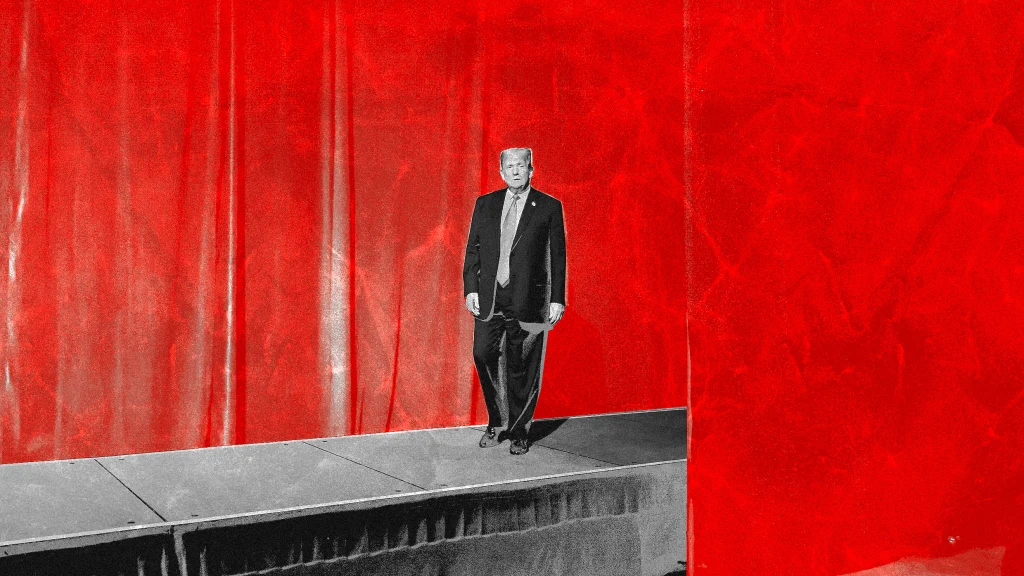In 2017, when Trump removed the U.S. from the Paris Agreement, big companies were quick to criticize. But things have changed. Today, businesses seem to sit silently, avoiding conflict with the president. What’s causing this shift?
Author Peter Hayes draws connections between corporate reactions today and those during Nazi Germany. Business leaders then underestimated Hitler, compromising out of fear. Is history repeating itself? Are businesses now avoiding backlash, prioritizing short-term gain over long-term sustainability?
The Corporate Silence
When Trump withdrew from the Paris climate accord, companies like Apple, Amazon, and Google spoke out. Mark Zuckerberg called it detrimental to the environment. But now, there’s silence. Some leaders even supported Trump at his inauguration. This shift highlights a broader trend: businesses are hesitant to oppose policies, fearing retribution or seeking benefits.
Trump, in a press conference, noted that previously combative business leaders now seek favor with him. This change suggests a strategic shift, likely driven by a mix of fear and self-interest. Executives worry about the repercussions of defying the administration and potential threats to their companies.
Parallels to Nazi Germany
Peter Hayes’ book, “Profits & Persecution,” examines how businesses in Nazi Germany conformed to avoid trouble. Initially, they underestimated Hitler, a mistake modern leaders might repeat with Trump.
In Nazi Germany, companies conformed out of fear. Some dismissed Hitler as a blowhard, but soon regretted it. Businesses complied with oppressive policies, wrongly believing they could moderate the regime’s actions. This historical case serves as a cautionary tale for today.
The intimidation tactics then mirror the pressure felt now. Hayes illustrates how even respected businesses succumb to authoritarian influence, despite initial resistance, highlighting the consequences of inaction.
The Role of Fear
Fear plays a crucial role in corporate compliance. Business leaders fear retaliation, losing federal contracts, or being sidelined in policy discussions.
In Nazi Germany, companies feared government intervention and became complicit in oppression. Similarly, Trump has used intimidation, causing some leaders to submit to his administration’s directives. The concern of backlash keeps them from speaking out.
Today, the fear isn’t just about corporate consequences. Executives worry about personal safety too, as political tension fosters threats of violence and cyber-attacks.
Slow Creep of Authoritarian Control
Companies often unwittingly contribute to authoritarian regimes by remaining silent, hoping to protect their interests.
Trump’s administration has gradually expanded its power, much like the early days of Hitler. This includes firing public officials unlawfully and consolidating power in questionable ways.
Business leaders are aware of these issues but tread carefully. The fear of drawing attention and repercussions keeps them from dissenting.
Economic Short-Sightedness
Trump, like Hitler, doesn’t seem concerned with long-term economic implications. His policies aim to boost fossil fuels despite global shifts to cleaner energy.
By resisting sustainable practices, corporations risk falling behind in an evolving market. Hayes notes the billions diverted to outdated industries, jeopardizing future growth.
Companies face a choice: support outdated policies or push for change. Those who prioritize short-term profits may suffer as industries pivot to sustainability.
Lessons from the Past
The early Nazi period showed businesses the dangers of not speaking up timely. While some held back, thinking they could moderate Hitler, they only postponed inevitable harm.
The hindsight of history stresses that silence enables malfeasance. Hayes urges current leaders to avoid repeating mistakes, as early intervention may prevent deeper complicity.
A proactive stance against authoritarian measures could stem the slip toward oppressive governance. Despite fears, businesses have a voice that could guide impactful change.
Today’s Challenges
Today, corporate leaders are pressured to conform, much like their German predecessors. Trump’s intimidation isn’t overt like Hitler’s, but subtle and systematic.
With tactics varying from political pressure to economic incentives, the message to comply is clear. By aligning with such policies, businesses risk being complicit in unethical agendas.
The Cost of Compliance
Complicity comes with a price, tarnishing reputations and limiting innovation. The price of yielding to authoritarian demands is high. It affects businesses’ credibility and ability to innovate.
Companies that choose compliance over challenging unjust policies may face public backlash. Reputation, once damaged, is hard to rebuild.
The threat of polarizing politics compels companies to weigh actions carefully, aware of potential fallout from either choice.
A Path Forward
Navigating this landscape requires courage and foresight. Businesses today need a strategy that balances ethical considerations with commercial interests.
Leaders must learn from history, knowing that silence can equal consent. The past informs the present, guiding decisions that impact future governance.
There is an opportunity for businesses to lead by example, promoting values over short-sighted compliance, ensuring they aren’t on the wrong side of history.
Conclusion
Silence, both then and now, serves as a tacit endorsement of harmful policies. Businesses must evaluate their role in society.
History warns against the cost of silence. Businesses should act now, embracing ethical responsibilities, and advocating for just policies. It’s time to learn from the past and make a stand.





